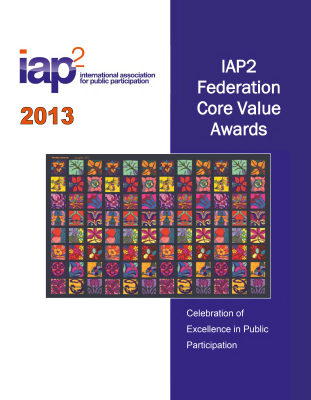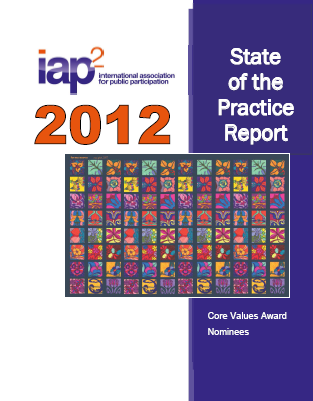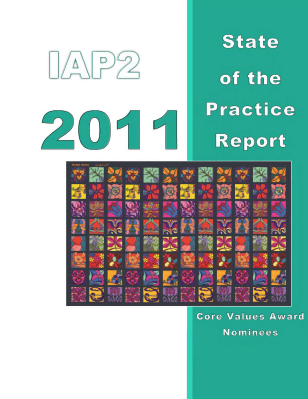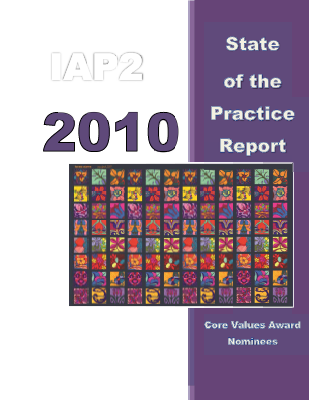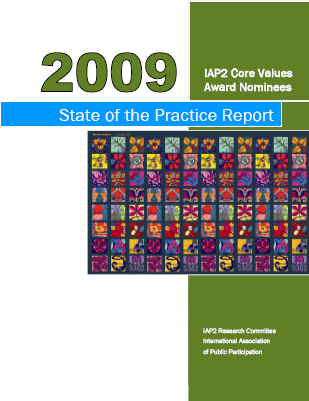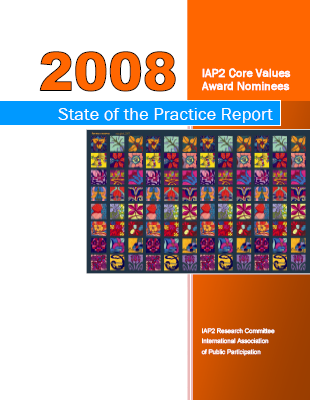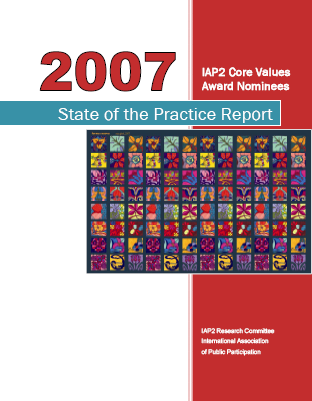Core Values Awards Background
Public participation is based on the belief that those who are affected by a decision have a right to be involved in the decision making process
IAP2 USA’s premier Core Values Awards recognize and encourage projects and organizations that are at the forefront of public participation. The Awards were created to promote excellence, quality and innovation in public participation. Embedding the IAP2 Core Values in organizations and projects that demonstrate leading practice is a key focus for the Awards.
Each year the IAP2 USA seeks nominations for the Core Values Award to recognize excellence and innovation in the field of public participation. Two awards carry forward to the International IAP2 Core Values Award – for the project and the organization that best exemplify the spirit and purpose of public participation. Winning projects demonstrate the use of innovative techniques, provide solutions to problems that face the field of public participation, involve the public in new ways, and show how public participation has affected decisions. While only three international awards are presented each year, IAP2 USA will present six awards beginning in 2016, and all entries present a wealth of information about the state of public participation in America and showcase excellence in practice.
The submissions for these awards are a valuable tool for learning about others’ experiences and informing our own practice. They provide useful examples of creative techniques, management or governance structures for participatory processes, methods to engage diverse groups or agencies, and reflections on lessons learned. The projects are exemplars of good practice, crossing topical areas such as health care, regional economic revitalization, transit, public education, community visioning, water management, energy conservation, cultural change, wastewater treatment facility development and city budget decision making. They all result in benefits for the agencies, stakeholders, communities and citizens.
The Core Value submissions also can be used for promoting or “making the case” for participatory approaches.
